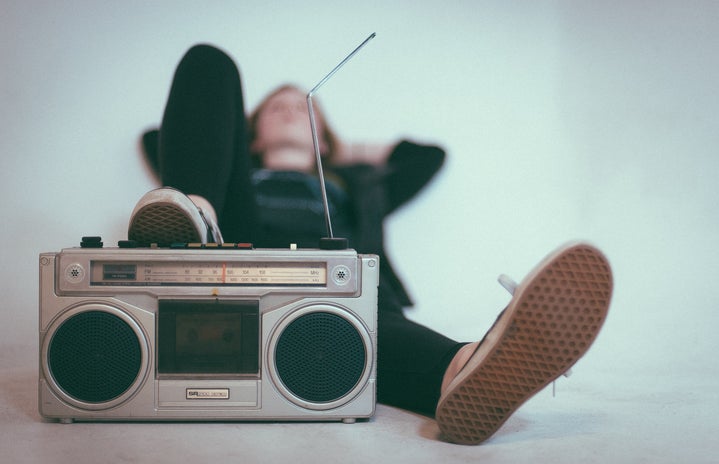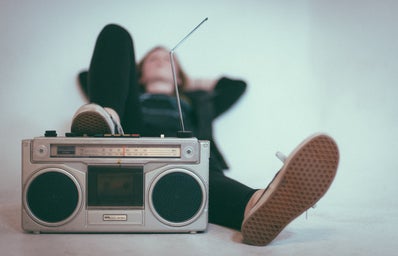While Gen Z continues to boast its obsession with freedom of expression, it fails to mend one particularly important facet of youth culture: judgment of other people’s music taste. This unnecessary inclination often causes us to preemptively label our own preferences as “trash” in an effort to lay claim to the embarrassment before it’s provoked. What do we gain from forming this insanely thin line between “weird” and “obscure”? And, how is it really impacting our sense of self regarding music taste?
“Rap is boring” is said as often as “rap is art” depending upon who’s in the conversation, forcing us to constantly shift our outlook on music and subconsciously impacting our own abilities to recognize our preferences. As a bonding force among friends, cultivating playlists based on a common love of certain genres or artists should be more than welcome, but not if it prompts the ridicule of others. People’s jerk reaction to make fun of someone’s enjoyment of music labeled as “lame” is a projection of their own inner desire to appear as cool, and all it does is take joy from all parties involved.
This judgement manifests online as well. In a world where socializing has shifted into the digital realm, social media has seeped into places that even Mark Zuckerberg is probably shocked by. People build profiles and a follower base for more than just sharing photos of sunsets nowadays, and there is a whole range of social apps that are used for career development, dating, working out, and more. One of the most popular of the groups is just for creating, sharing, and listening to music playlists. This concept, though inherently relaxing, tends to spur up a great deal of pent up Gen Z aggression.
I’ll admit that even I have fallen victim to the stigma around certain music genres, cultivating specific playlists for group settings versus just for me. Although I can objectively list all of the reasons why Spotify has better features for expanding music taste, I’ve cowered away from making the switch from Apple Music in the past solely due to the one feature that haunts both my friends and me: Spotify Friends. This tool displays in real time what songs your friends are playing, hoping to encourage the exploration of different genres, support of new artists, and broadening of people’s taste. It’s loved by many, however with an increase in transparency comes the opportunity for negative opinions regarding one’s decisions, and I often hear stories of this feature accidentally perpetuating them.
At what point does someone checking in on your mental health because they saw you listening to Frank Ocean at 3 am transition from supportive to invasive? I know someone whose only Spotify Friend is her boyfriend, added after months of pestering, because he claims that it makes him “trust her more.” This implication that hovering over someone’s digital shoulder can reveal more about their personality than just having an honest discussion with them encourages people to make assumptions about situations in which they have no involvement, which can be a harmful mindset. If we decide to refuse our cravings to listen to old Disney music because we are worried that other people will see, all it does is strengthen our insecurities and support the notion that only music that is deemed as “cool” by this generation can be enjoyable. This is especially confusing when we consider how there is no official way to decide what songs are “better” than others. Was I shocked to find out that Dixie D’Amelio has more monthly Spotify listeners than Tyler the Creator? Of course I was. But, that set of data itself does not automatically mean that she is more talented, or that the two need to be compared at all. People even go as far as to rank music listening platforms, shaming the Apple Music users for not switching over to its competitor, as if most college students aren’t clinging onto some sort of family plan anyway.
At the end of the day, music is so popular because it invokes a different feeling for everyone, offering personal reactions that range from processing our emotions to forgetting them altogether. When we let common judgements about our passions impact our love for them, all we do is hold ourselves back. So, keep in mind that your “trash” is another person’s niche, and vice versa because listening to music becomes a lot more fun when it is actually on your own terms. I don’t expect competition surrounding music tastes to disappear anytime soon, but I can make an active effort to stop contributing to it and allowing its negativity to pollute my sacred playlists. Especially during a global pandemic, can’t we just let the relaxing things stay relaxing?


